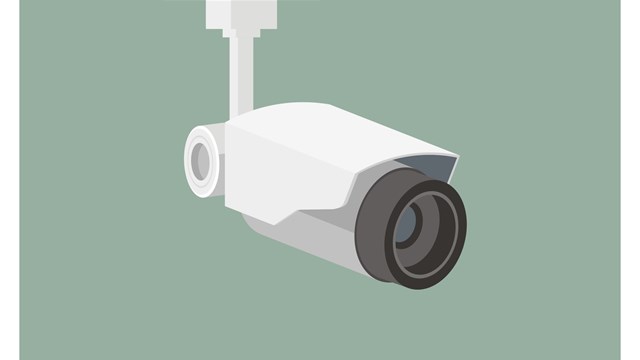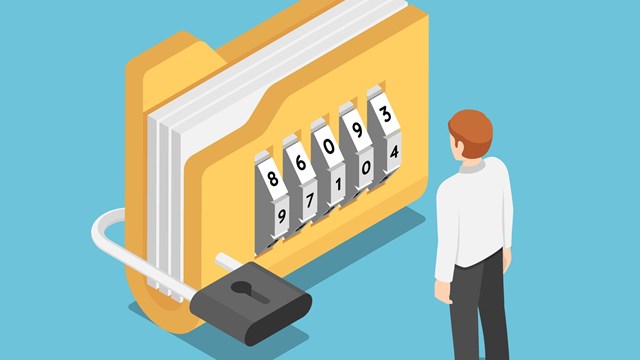
The issue of intellectual property and an individual’s right to privacy has become a greater concern since more and more people conduct their lives online—whether for banking, social media or dating. While the aforementioned generally have security features encrypted in programming platforms, there remain justifiable concerns as to what is actually protected. This heightened sense of scrutiny results in ancillary privacy concerns, especially for those living in community associations.
Whether it is the installation of security cameras, insider criminal activity or environmental health concerns, both boards and residents have to be aware of state laws and governing documents. Cases of privacy intrusion happen from coast to coast. Last year, for example, a Florida family living in a penthouse suite sued its condominium association for cell phone towers that were installed on their roof without permission causing loud noises and health risks. In Hawaii, a security guard was arrested for copying residents’ keys and stealing credit card and banking information.
Shared community living does possess certain rights and restrictions and questions regarding privacy are always at the top of the list.
“Most occupants of multifamily residential buildings believe that they are entitled to a safe living environment, with minimal intrusion from landlords or from cooperative or condominium boards or from their neighbors,” says David Berkey, an attorney and partner with the New York-based law firm of Gallet Dreyer & Berkey LLP. “Their privacy expectations usually are greater than the legal obligations imposed on owners or managers of such residential buildings. Generally, the law imposes few privacy obligations upon owners or boards,” he continues. “The occupants are entitled to a working door lock so that others may not invade their home, reasonable security given the past history of the building and neighborhood, and freedom from improper intrusions, including visual or electronic intrusions.”
The “Rules” of Privacy
In all states, a person has the right against unreasonable, substantial or serious interference with his (or her) privacy. Above and beyond this mandate, there are federal and state electronic records laws, health privacy laws, laws regulating what information may be released by the government and by employers and laws regarding the unauthorized use of a person’s name or image.
For a board, a gray area exists with regard to privacy when forming (or amending) governing documents to address issues such as determining access to units. Regardless of the initiative, Roy Stillman, president of the Westchester-based Stillman Property Management, says governing boards must look to industry professionals for guidance. “Whether it is a management company or an attorney, a board needs an advisor. If they can’t afford an attorney on retainer then they should hire one on a case-by-case basis because it is always best to err on the conservative side.”
The basic rule for boards to remember is that a person has a reasonable expectation of privacy within his or her living space, notes Stillman. This begs the question: What is a “living space” in a condominium? Does it include the common areas?
“Landlords and boards are given the right by leases and bylaws to enter an apartment in an emergency to perform repairs, to enter upon reasonable notice to perform repairs if there is no emergency and, in some cases, to enter an apartment for an inspection upon reasonable notice,” says Berkey. “Recent privacy laws protect sensitive information provided to a landlord or board by apartment owners such as social security numbers and health-related information,” he continues. “For the most part, however, there is no legal obligation imposed on landlords or boards to keep confidential the information provided to them by cooperative or condominium owners.”
Data privacy regulations are continually under inspection by state and federal entities. To this end, boards obtaining personal information in connection with the provision of goods or services about a New York resident, including first name and last name or first initial and last name in combination with data elements such as Social Security number or driver’s license number can be held accountable.
This year New York Governor Andrew M. Cuomo expanded upon the Privacy Act of 1974 which addressed the collection and dissemination of Social Security Numbers (SSN) by and among federal government agencies. Section A.8992 focuses on private entities that limits the instances where persons and businesses are allowed to require New Yorkers to provide their SSNs. Specifically, the legislation “prohibits individuals and businesses from requiring an individual, absent consent, to disclose or furnish his or her SSN for any purpose in connection with any activity or to refuse any service, privilege or right to an individual because the individual refuses to disclose or furnish his or her SSN.”
There are, of course, exceptions which include a SSN required for employment, internal verification, fraud investigation or a request for a credit transaction initiated by the consumer. The violation includes civil penalties in excess of $500.
Who is Watching Whom?
While it is plausible and common for boards to grant reasonable access to a unit for maintenance reasons, there are issues that can cause trepidation among certain tenants, even if their respective best interests, or that of the community, are guiding the motion. One example is security cameras.
“Of course, a board can do it and while it is common for tenants or unit owners to be made aware of it, I don’t suggest a board telling unit owners or tenants where every camera is,” says Stillman. There can be issues, however, if the cameras are used for the wrong purpose. Stillman offered an example where a board installed cameras for the intent of “catching” a tenant in the act of repeated wrongdoings reported by other residents. “That was done with the intention of proving a point but that case ended up in small claims court and the tenant won.”
There are cases when cameras become a board’s best friend. “Boards and managers have installed security cameras in a hallway to catch those who have been defacing common property or violating house rules such as failing to keep dogs on leashes in hallways, elevators and other common areas,” says Berkey.
Currently there are no laws that specifically address privacy in a multifamily setting other than in a motel, hotel or inn. Berkey notes that New York’s Penal Law, section 250.45, makes it a felony to intentionally use or install a camera to secretly view, broadcast or record a person dressing or undressing or the sexual or other intimate parts of such person at a place and time when such person has a reasonable expectation of privacy, without such person’s knowledge or consent. The Penal Law also prohibits installation of cameras in a bedroom, changing room, fitting room, restroom, toilet, bathroom, washroom, shower or any room assigned to guests or patrons of a motel, hotel or inn, without such person’s knowledge or consent.
In some cases, boards will require that all guests and service personnel sign in and out when visiting the building. While this again is commonplace in many buildings, concerned parties are sometimes wary of why this information is needed. “This practice is common and perfectly acceptable,” says Stillman. “When it comes to privacy issues, it is always best to ask: what is the purpose and what will the information be used for?”
Along with daily visitors, many boards will also limit the number of days or weeks that a resident can host a guest. “Boards have the power to enact rules that limit traffic into a building, that permit the board to know who is entering the building, when and for what purpose, and that limit the length of time a guest can remain in an owner’s apartment,” says Berkey. “The only limitations on such rules are those found in a proprietary lease or by-laws, and those that are imposed by law, such as the roommate law.”
Overstepping Boundaries
As long as boards adhere to state statutes, they are able to make as many security-based or privacy enhancements as desired. While these amendments often require a community vote, mostly they are done with safety in mind; however, there are some instances that may cross the line including publicly posting the names of unit owners who hasn’t paid dues or are considered a nuisance.
“Generally, security issues in multifamily buildings are handled by the building owners and managers and can be found in a cooperative’s proprietary lease and house rules or in a condominium’s bylaws or rules and regulations. These documents usually restrict behavior of residents that might interfere with their neighbors—disturbing noise and odor issues, rather than privacy or security concerns,” says Berkey. “When cooperative or condominium boards adopt policies to preserve confidentiality of information provided to them, they usually do so as an internal policy measure. Some boards will adopt a code of conduct that board members must follow, such as keeping confidential the financial and other personal information provided to or learned by board members as a result of their position.”
Stillman explains that over the years he has seen instances where boards will engage in initiatives that might otherwise be well-intended but have unseen consequences. “While it doesn’t happen all that often any more, boards used to install barbed wire fencing without approval and then the next thing you know a kid climbs it and gets hurt, or a far-reaching example might be a board that installs safety lights that are blinding people and residents and are not within the building code.”
While boards require flexibility and transparency with residential unit owners and tenants, Berkey said when asked pointed questions, boards should be reserved. “Responses to inquiries about security will have to be tailored to meet the particular circumstances which led to security measures being installed in the building. The response must not overstate the scope or benefits to be derived from the security system,” he says. “The board and management should not lead occupants to believe that security devices are always functioning or that they will deter an individual that is intent upon causing a problem. Security devices are most often used after the fact, to catch a person who acted improperly. It is the prosecution of such person or the imposition of some other sanction upon that person that deters others from acting similarly in the future.”
As a general rule, when it comes to privacy issues, Stillman says that there is one golden rule. “A board has to keep in mind that they are governing and that is a an important duty especially when it comes to issues of security and privacy,” he continues. “The most important part of that responsibility is communication as it is in their best interest.”
W.B. King is a freelance writer and a frequent contributor to The Cooperator.






Leave a Comment